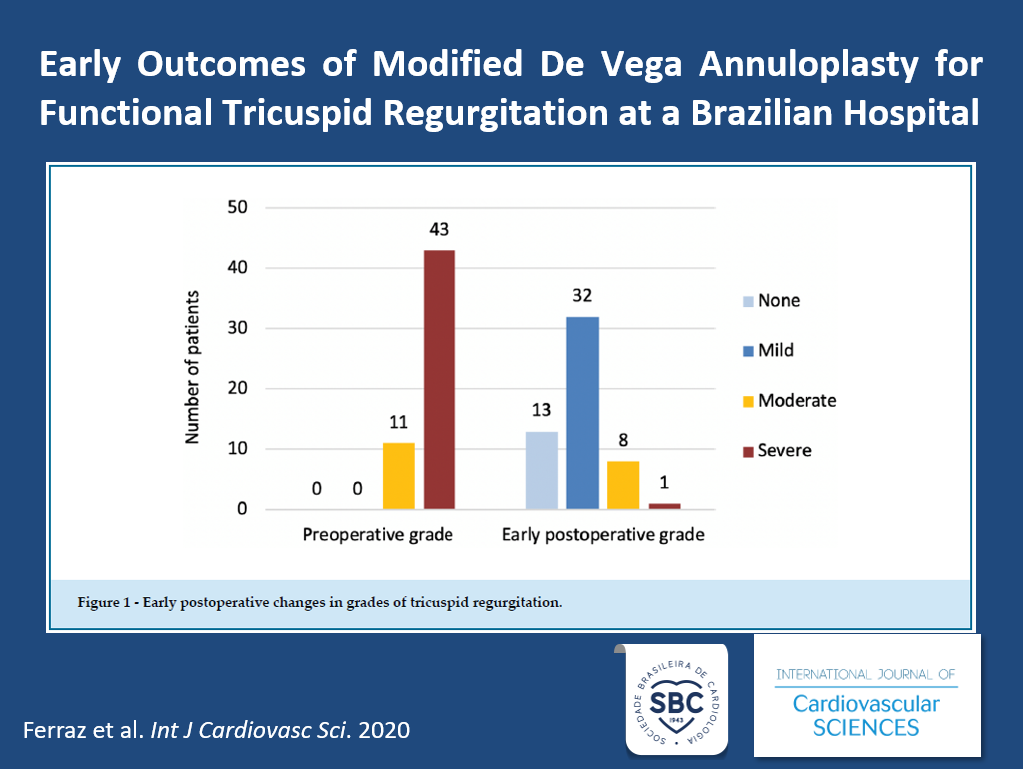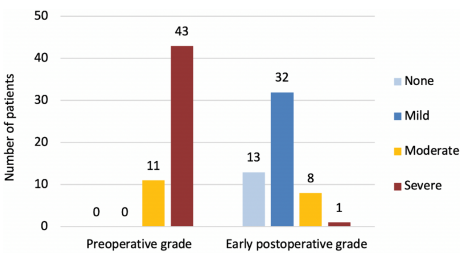International Journal of Cardiovascular Sciences. 25/Aug/2020;33(5):472-8.
Early Outcomes of Modified De Vega Annuloplasty for Functional Tricuspid Regurgitation at a Brazilian Hospital
Graphical Abstract

Abstract
Background
Right valve diseases are not benign, the tricuspid regurgitation has a significant impact on morbidity and mortality of patients.
Objective
This study aimed to report the short-term results of tricuspid annuloplasty using the De Vega technique modified by Manuel Antunes.
Methods
A descriptive-analytical study was performed to evaluate the results of the tricuspid valvuloplasty performed at the Instituto de Medicina Integral Professor Fernando Figueira between 2012 and 2017. Data were collected by reviewing charts and databases of the Department of Cardiology and Cardiovascular Surgery of the institution. Those with rheumatic diseases or infective endocarditis with tricuspid valve involvement, or reoperation of the tricuspid valve were excluded. Student’s t-test and McNemar’s were used for statistical analysis. A p-value < 0.05 was considered statistically significant.
Results
A total of 87 patients were studied, most of them were women (56.3%). The most associated heart valve diseases were mitral regurgitation (27.6%) and aortic regurgitation (20.7%). There was a significant decrease in the degree of tricuspid regurgitation in the postoperative period, with 83.3% of patients with none or mild regurgitation and only 1.1% with severe regurgitation (p = 0.0077).
Conclusion
In the current study, tricuspid valve annuloplasty using the modified De Vega technique was shown to be effective in the short term. Further studies are needed to evaluate the long-term results. (Int J Cardiovasc Sci. 2020; 33(5):472-478)
654

